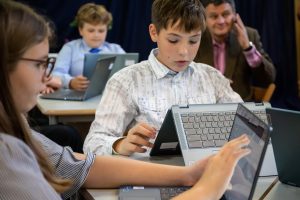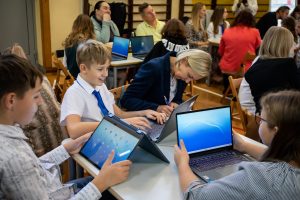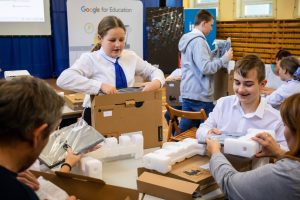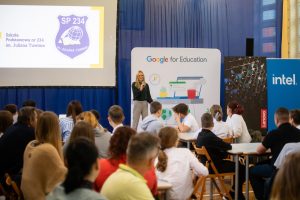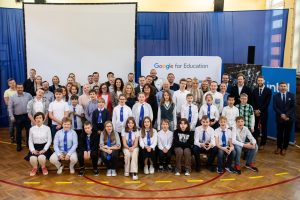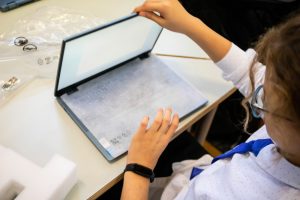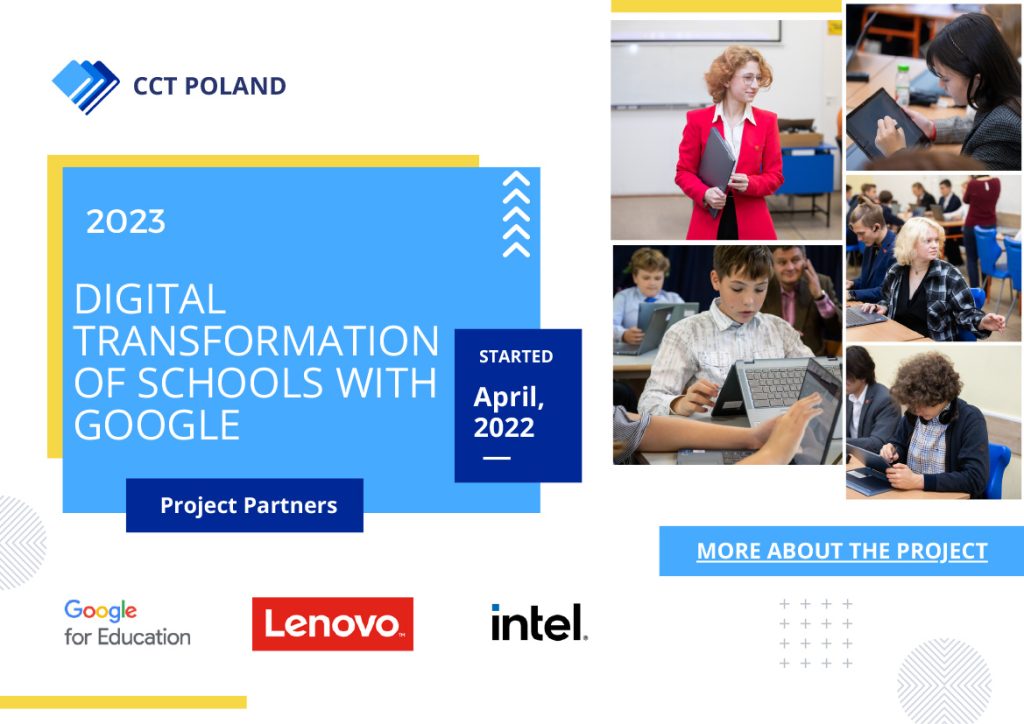Project Albus
Can you imagine organizing your work without the right electronic accessories? Regardless of whether you are an office worker, nurse, freight forwarder or sales representative, you need to use specific tools – which are a telephone, a computer with an e-mail box, text editors and appropriate applications. Most likely, for most employees, getting rid of this type of equipment would cause huge chaos and the inability to quickly perform the tasks entrusted to them. Today, it is not necessary to prove to anyone that equipping employees with appropriate digital tools help them to perform their work more effectively.
Similar relationships appear in the case of educational institutions, we are talking about teachers and students. Equipping both groups with appropriate textbooks, notebooks, pens, and pencils helps them improve the quality of both teaching and learning. How, then, would school learning change if instead of pencils and notebooks, we equip students with laptops, e-mail boxes or content creation applications? Google as a company has been running educational Albus projects for many years that a

